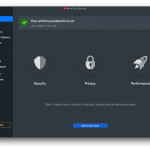Facebook enables the use of hardware security keys on mobile devices

Facebook is expanding support for physical security keys to mobile devices in order to help users secure their accounts.
The site already offers multi-factor authentication via SMS or authenticator apps, but adding support for hardware keys offers users another means of supplementing their passwords and keeping their accounts more secure.
Phishing campaign uses US tax season to lure victims

Researchers at Cybereason have detected a new campaign targeting US taxpayers with documents that purport to contain tax-related content.
These deliver NetWire and Remcos -- two powerful and popular RATs which can allow attackers to take control of the victims' machines and steal sensitive information. The malicious documents used are roughly 7MB in size, which allows them to evade traditional AV mechanisms and heuristic detection.
Cloud moves continue despite challenges

Enterprises are keen to achieve the many business, technical and financial benefits of moving legacy systems to the cloud despite challenges along the way.
A new report from SAP to AWS migration specialist Lemongrass finds 77 percent of IT leaders say their primary motivation for migrating legacy systems to cloud infrastructure is either a desire to secure data, maintain data access or save money.
Overcoming SaaS platform tech debt [Q&A]

The rapid shift to remote working has accelerated digital transformation and mass-cloud migration across almost every organization -- even those who weren't necessarily ready for it.
As IT professionals settle into long-term planning and management of their SaaS platforms and apps, CoreView's SVP Doug Hazelman believes they must now begin to effectively manage their cloud infrastructure so they can focus on maximizing the value of their investments. We spoke to him to learn more.
Excess permissions put Android app users' data at risk
Over a third of the 1,020 most-downloaded Android apps on the Google Play store request access to a user's camera -- despite no obvious benefit for user experience and potentially placing sensitive data at risk.
Research from CyberNews also shows one in three apps request access to track a user's precise, or approximate, location. Excluding those that require such access to function, such as weather or navigation, applications attempting invasive access included gaming and even wallpaper, which appear to have no legitimate reason to track location data.
Developers seen as crucial to pandemic recovery

Developers are key to recovery from the pandemic according to 91 percent of UK businesses in a new survey, and 95 percent see them as crucial to digital transformation projects too.
But the study from cloud communications platform Twilio finds that the majority are not yet unlocking the full power of developers.
71 percent of Office 365 users suffer malicious account takeovers

New research from network detection and response company Vectra AI shows that 88 percent of companies have accelerated their cloud and digital transformation projects due to COVID-19.
But it also finds that 71 percent of Microsoft Office 365 deployments have suffered an account takeover of a legitimate user's account, not just once, but on average seven times in the last year.
47 percent of workers spend their own money fixing home working technical issues

Tech issues at home can be frustrating enough when you're trying to stream a movie or set up a video call with the family, but they're even more of an issue if you're trying to work from home too.
New research from comparison site InMyArea.com looks at how tech issues are affecting the home workforce. It finds that 47 percent of employees have spent their own money to solve technical problems, with 20 percent spending $100 or more.
Ransomware up 62 percent since 2019

Cybercriminals are using more sophisticated ransomware tactics and more dangerous variants, like Ryuk, to earn an easy payday. This has seen a 62 percent increase globally and a 158 percent spike in North America since 2019.
The latest Cyber Threat Report from SonicWall highlights how COVID-19 has provided threat actors with opportunities for more powerful, aggressive and numerous attacks, thriving on the fear and uncertainty of remote and mobile work forces navigating corporate networks from home.
Free tool helps enterprises assess their Active Directory security

Microsoft Active Directory (AD) is used by 90 percent of enterprises as the primary source of trust for identity and access, but it's also exploited in many cyberattacks.
Since AD is rarely safeguarded effectively, attackers have come to depend on weak configurations to identify attack paths, access privileged credentials and get a foothold in target networks.
29 percent of threats previously unknown as hackers update tactics

The latest Quarterly Threat Insights Report from HP shows that 29 percent of malware captured between October and December 2020 was previously unknown, due to the widespread use of packers and obfuscation techniques by attackers seeking to evade detection.
In addition 88 percent of malware was delivered by email into users' inboxes, in many cases having bypassed gateway filters. It took 8.8 days, on average, for threats to become known by hash to antivirus engines, giving hackers over a week’s head-start on their campaigns.
Avira launches new security product for Mac systems

German cybersecurity company Avira is launching a new security for Mac product with free as well as premium versions, developed from the ground up on Apple’s latest tech stack.
The all-in-one solution blocks and removes threats, enables worry-free browsing, shopping and payment through real-time protection, and protects data with VPN encryption.
Public key infrastructure and digital certificates essential to zero trust

Public key infrastructure (PKI) and digital certificates are essential to achieving zero trust architecture according to 96 percent of North American enterprises.
However, only 39 percent use PKI as part of their zero trust security strategy today according to a survey from Pulse Research and PKI as-a-Service (PKIaaS) company Keyfactor.
Businesses more likely to buy from companies offering ongoing security

Technology providers that are transparent and proactive in helping organizations manage their cybersecurity risk are more likely to win business according to a new study from Intel.
The results show 73 percent of respondents say their organization is more likely to purchase technologies and services from technology providers that are proactive about finding, mitigating and communicating security vulnerabilities, while 48 percent say their technology providers don’t offer this capability.
Why security and observability are key to software development [Q&A]
Ian's Bio
Ian spent almost 20 years working with computers before he discovered that writing about them was easier than fixing them. Since then he's written for a number of computer magazines and is a former editor of PC Utilities. Follow him on Mastodon
© 1998-2026 BetaNews, Inc. All Rights Reserved. Privacy Policy - Cookie Policy.

